Bookkeeping Practices for Contractors in Canada: A Guide to Efficient Financial Management
In the dynamic world of contracting, where every project has its unique challenges and opportunities, maintaining impeccable financial records is not just a necessity—it’s a strategic advantage. For contractors in Canada, effective bookkeeping ensures not only compliance with regulatory requirements but also positions your business for growth and success. Here’s a guide to the best bookkeeping practices tailored specifically for contractors in Canada.
1. Adopt a Project-Based Approach
Construction and contracting involve managing multiple projects simultaneously, each with its own financials. Implementing a project-based approach to bookkeeping means:
-
- Separate Accounts for Each Project: Track income and expenses for each project separately. This helps in assessing profitability and managing budgets more effectively.
-
- Detailed Job Costing: Allocate costs such as labor, materials, and subcontractor fees to each project. Accurate job costing helps in better estimating and controlling costs.
2. Utilize Construction-Specific Accounting Software
Investing in accounting software designed for the construction industry can significantly streamline your bookkeeping:
-
- Features to Look For: Ensure the software offers job costing, progress billing, project management integration, and detailed financial reporting.
-
- Popular Options: Consider software like Sage 300 Construction and Real Estate, QuickBooks Online, or Buildertrend. These tools provide functionalities tailored to the needs of contractors.
3. Keep Personal and Business Finances Separate
Mixing personal and business finances can lead to confusion and inaccurate bookkeeping. Maintain clarity by:
-
- Opening Separate Bank Accounts: Use dedicated bank accounts for business transactions to keep personal expenses separate.
-
- Using a Business Credit Card: Charge business-related expenses to a separate credit card to simplify record-keeping and expense tracking.
4. Implement a Regular Record-Keeping Routine
Consistency is key in bookkeeping. Establish a routine to ensure all financial transactions are recorded accurately:
-
- Daily or Weekly Updates: Regularly update your books to reflect recent transactions. This includes entering expenses, recording payments, and tracking invoices.
-
- Organize Documentation: Keep all receipts, invoices, and contracts organized. This will make it easier to verify transactions and prepare for audits.
5. Perform Regular Reconciliation
Reconciliation helps to ensure that your financial records align with bank statements and other financial documents:
-
- Bank Reconciliation: Regularly compare your bank statements with your bookkeeping records to identify and rectify any discrepancies.
-
- Review Financial Reports: Regularly review your profit and loss statements, balance sheets, and cash flow statements to monitor your financial health and performance.
6. Stay Compliant with Canadian Tax Regulations
Understanding and complying with Canadian tax regulations is crucial for avoiding penalties and ensuring accurate reporting:
-
- GST/HST Collection and Remittance: Track and remit GST/HST collected from clients as required by the Canada Revenue Agency (CRA). Keep detailed records of these transactions.
-
- Deductible Expenses: Familiarize yourself with deductible expenses such as materials, equipment, and subcontractor fees. Properly categorizing these expenses can reduce your taxable income.
7. Manage Payroll Efficiently
Payroll management is a critical component of bookkeeping for contractors with employees:
-
- Accurate Wage Tracking: Ensure all employee wages, benefits, and deductions are accurately recorded.
-
- Compliance with Payroll Regulations: Adhere to Canadian payroll regulations, including accurate tax withholdings and contributions to the Canada Pension Plan (CPP) and Employment Insurance (EI).
8. Seek Professional Advice
While DIY bookkeeping can be effective, consulting with a professional accountant or bookkeeper can provide added value:
-
- Tax Planning: A professional can offer strategic advice on tax planning and help you navigate complex tax regulations.
-
- Financial Insights: They can provide insights into improving your financial management practices and optimizing profitability.
9. Stay Informed About Industry Changes
The construction industry and tax regulations are subject to change. Staying informed helps you adapt to new requirements and best practices:
-
- Industry Associations: Join organizations like the Canadian Construction Association (CCA) to receive updates and resources relevant to the industry.
-
- Government Updates: Regularly check for updates from the Canada Revenue Agency (CRA) and other regulatory bodies.
10. Develop a Contingency Plan
Unexpected issues can arise, and having a contingency plan for your finances can help mitigate risks:
-
- Emergency Fund: Set aside funds for unforeseen expenses or cash flow issues.
-
- Financial Forecasting: Regularly update your financial forecasts to reflect changes in your business environment and project timelines.
Conclusion
Effective bookkeeping is essential for Canadian contractors to manage their finances efficiently, comply with regulations, and ensure profitability. By adopting a project-based approach, utilizing specialized software, maintaining organized records, and seeking professional advice, you can keep your financials in excellent shape. Embrace these best practices to streamline your bookkeeping processes and focus on delivering outstanding projects.
If you have any questions or would like to share your own bookkeeping tips, feel free to leave a comment below. Stay tuned for more insights and tips on managing your contracting business effectively!



